Electromagnetics Blog Posts
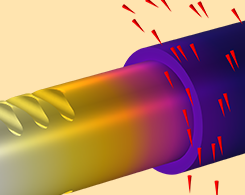
Predicting the Effects of Induction Heating with Simulation
What is induction heating? What are the benefits of it? Can it be simulated with COMSOL Multiphysics? Keep reading to find out…

Optimizing Solar Cell Designs with a Simulation App
The SolCelSim app, designed by an MSc student at the University of Zilina, enables researchers to simulate solar cell designs, even if they are unfamiliar with simulation software.

Micromagnetic Simulation with COMSOL Multiphysics®
A guest blogger from Fudan University in China used the Physics Builder in COMSOL Multiphysics to create a “Micromagnetics Module” for performing micromagnetic simulations.
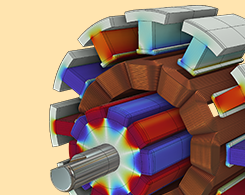
Computing Loss, Temperature, and Efficiency in Electric Motors
Follow along as we investigate the variation of iron and copper losses, the resulting temperature rise, and its effect on the efficiency of a permanent magnet machine.
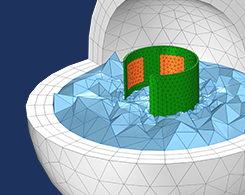
Wrapping and Warping Geometries for Analysis in COMSOL®
CAD parts are typically designed in an undeformed, as-manufactured state. When it comes to analysis, however, we are only interested in the deformed, as-assembled state.
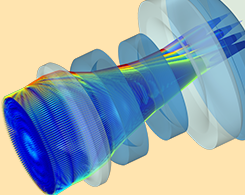
Zooming in on a Compact Camera Module Design with Simulation
Lights, camera, simulation: Read about factors that help define the performance of compact camera modules (CCMs) as well as how optical ray tracing can be used to analyze their design.

Designing Antireflecting Microstructures for Infrared Applications
Explore how 2 microstructure designs can improve the bulk transmittance of silicon (~70%) and cadmium zinc telluride (~79%) to more than 90% within the specific wavelength spectrum.
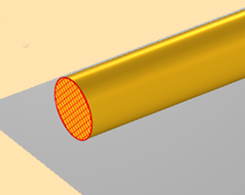
Voltage and Ground When Modeling Wave-Like EM Fields
We continue our discussion of voltage and ground by defining and interpreting these terms for sinusoidally time-varying electromagnetics models.
